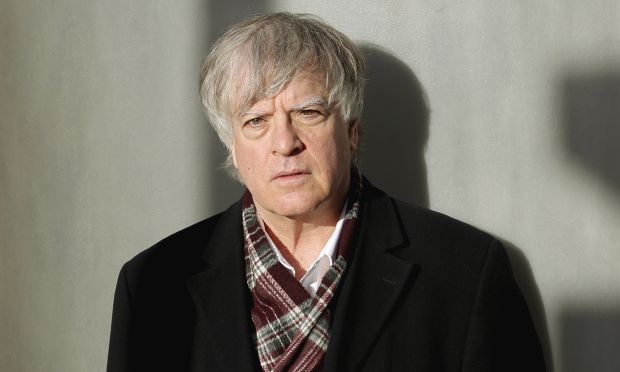
File photo of US journalist David Satter.
Moscow, AP—Russia’s foreign ministry on Tuesday said Moscow has barred a journalist for the US-funded Radio Free Europe/Radio Liberty from the country for five years over a visa infraction, a charge rejected by the journalist who described the move as “a bureaucratic trickery” to keep him out of the country.
A Foreign Ministry statement said Tuesday that David Satter, who had been working for the broadcaster in Moscow since September, had not applied for an extension of his visa within the prescribed time. Satter said the case was bureaucratic obfuscation and RFE/RL President Kevin Klose said in a statement that barring Satter from entering Russia was a “fundamental violation of the right of free speech.”
Satter returned to Moscow from a trip abroad on November 21 and, according to the Foreign Ministry, was to have immediately applied for an extension of his visa. However, he waited five days to do so, the ministry said. A court on November 29 found him in violation of administrative procedures and ordered him to leave the country. The Foreign Ministry said he left on December 4.
Satter insisted that the Foreign Ministry had promised him that he would be issued a new visa the day after his arrival, but did not provide him with a support letter for migration officials on that day, and then his application was further delayed by a weekend. He said that when he finally managed to visit the migration agency’s office, it declared him in violation of visa rules.
“They have had 20 days to come up with an explanation,” Satter told The Associated Press from London. “Now, when the story comes out they are finally offering such an absurd explanation, which they know and they are perfectly aware is a case of just bureaucratic trickery.”
Klose said in the statement Monday that Satter tried to obtain a new visa while in Ukraine, but a Russian diplomat there read him a statement on December 25 saying that Russian “competent organs” consider his presence in the country “undesirable.”
The US Embassy has lodged a protest with the Foreign Ministry, Klose said.
The denial of entry to Satter follows years of his critical reporting about Russia. Satter first worked in Moscow in 1976–1982 as a correspondent of the British newspaper Financial Times, and has written extensively about the Soviet Union and Russia since then.
He has authored several books about Russia, including Darkness at Dawn: the Rise of the Russian Criminal State. An abridged Russian-language version was published recently in Moscow. The book focused on the alleged role of Russian security agencies in apartment building explosions in 1999 that triggered the second war in Chechnya.
“They know me very, very well,” Satter told the AP. “I have been writing about Russia, writing about the Soviet Union almost for four decades. To say that I’m not allowed on the territory of the Russian Federation at the request of the security services—this I haven’t seen applied to a journalist in my entire career of writing about Russia.”
The move against Satter appears to reflect increasing Kremlin nervousness about critical reporting. The expulsion of Western reporters was common during the Cold War times, and the Kremlin revived the practice recently. In 2011, Russia denied entry to Luke Harding, a Moscow correspondent for the London-based Guardian. In 2012, French freelance journalist Anne Nivat had her business visa cancelled after she tried to gather information about opposition groups in the provinces.
Satter’s expulsion will likely further strain US–Russian ties, which have been hurt by disputes over Washington’s missile defense plans, Russia’s rights record and, most recently Ukraine, which recently ditched a pact with the European Union in exchange for a 15-billion US dollar bailout package from Russia.
Satter was openly critical of President Vladimir Putin’s pet project, the Sochi Olympics that start on February 7, saying that the Kremlin has been unable to defeat the Islamist insurgency that poses a threat to the Games.
“If this is really a question of a bureaucratic misunderstanding, then they should make it clear what is necessary, then they should rescind their refusal of my visa and allow me to return to Moscow immediately, and I will return,” Satter said. “I have my apartment there, I have all my belongings and all my materials.”
